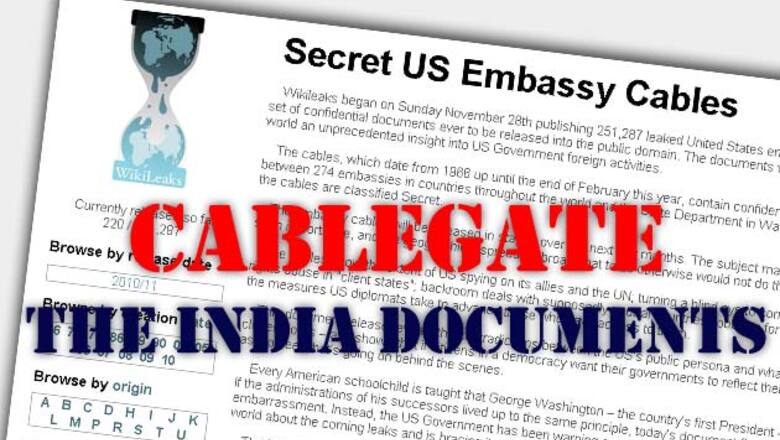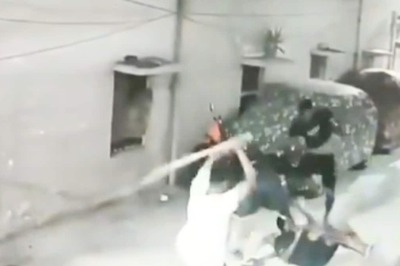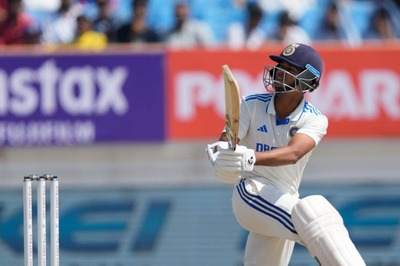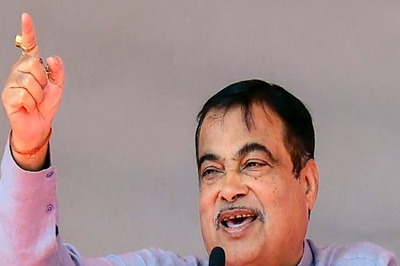
views
Reference ID: 09PARIS1473
Date: 2009-11-03 11:11
Classification: SECRET//NOFORN
Origin: Embassy Paris
VZCZCXRO7742
PP RUEHDBU RUEHFL RUEHKW RUEHLA RUEHNP RUEHROV RUEHSL
DE RUEHFR #1473/01 3071139
ZNY SSSSS ZZH
P 031139Z NOV 09
FM AMEMBASSY PARIS
TO RUEHC/SECSTATE WASHDC PRIORITY 7468
INFO RUEHZL/EUROPEAN POLITICAL COLLECTIVE PRIORITY
RHEHNSC/WHITE HOUSE NSC WASHINGTON DC PRIORITY
S E C R E T SECTION 01 OF 04 PARIS 001473
NOFORN
SIPDIS
E.O. 12958: DECL: 11/03/2019
TAGS: PREL NATO PARM MOPS SENV KGHG AF FR RU PK
IR, GV, SG
SUBJECT: SCENESETTER FOR YOUR VISIT TO PARIS -- NOVEMBER 8,
2009
PARIS 00001473 001.3 OF 004
Classified By: Classified By: Ambassador Charles H. Rivkin, for reasons
1.4(b) and (d).
¶1. (S/NF) SUMMARY. Madam Secretary, your Paris Embassy and
the French are eager to welcome you to
France. FM Kouchner quickly invited you to lunch or a
meeting on Sunday, which is not a usual practice.
He looks forward to talking with you about key issues,
including Afghanistan, Iran, and relations with Russia.
Kouchner recently visited Afghanistan, and he will
undoubtedly be interested in hearing your insights
about recent developments there and your views on Pakistan.
France is our strongest ally in pursuing a
dual track policy with Iran, and has been helpful in rallying
Europe to a more clear-eyed assessment of Iran's
nuclear ambitions. Paris welcomed the U.S. "reset" with
Russia and views Moscow as a strategic partner
that cannot be ignored. End Summary.
--------------------
SARKOZY AND KOUCHNER
--------------------
¶2. (S/NF) FM Kouchner, coming from the opposition Socialist
Party, is regularly polled as one of the
most popular French politicians and is a high-profile example
of Sarkozy's successful policy of outreach to
the leaders of other political parties. He has a solid
working relationship with the demanding French President.
Kouchner has also carved out specific areas where he has
largely free rein and which play to his strengths and
previous experience, including in humanitarian affairs, the
Balkans, and democratization efforts. Despite these
positives, we have occasionally witnessed lapses in
communication between the two offices due to Sarkozy's
tendency to seize the initiative and "speak first, consult
later" and his penchant for proposing high-level
summits to cut through bureaucratic red tape.
¶3. (S/NF) Both Sarkozy and Kouchner are committed to a
strong Europe with a strong transatlantic
relationship with the U.S. Both see Europe as our closest,
most natural partner in fighting terrorism
in Afghanistan and piracy on the high seas, or promoting
peace as part of the Middle East Peace process
quartet, fighting Iran's nuclear weapons ambitions, and in
stabilizing the Balkans. Likewise, they view France,
and neighboring Germany, as the natural leaders of Europe.
Kouchner and Sarkozy both have a pragmatic approach to
problems, characterized by a high degree of "hands on"
personal involvement in the issues that interest them.
Your visit will give FM Kouchner an opportunity to showcase
his close ties to you and to the Obama
administration, vindicating France's unabashed "pro-American"
stance, which is a significant reversal
from the Chirac years when France defined its power more in
opposition to, rather than collaboration with, the
United States.
-------------------------------------------
AFGHANISTAN: SAME GOALS, LIMITED RESOURCES
-------------------------------------------
¶4. (C/NF) FM Kouchner was in Afghanistan on October 17-18 on
a "purely political" trip designed to consult
with the main presidential candidates and to move the
electoral process forward. He cooperated closely
with Senator Kerry to send a combined message of support for
the acceptance of a second round of voting.
Afghanistan remains a high foreign policy priority for the
French government, but they have difficulty
translating their interest into additional concrete military
and civilian support. French government
officials, including both President Sarkozy and FM Kouchner,
have long advocated that "there is no
purely military solution" to Afghanistan. When it comes to
putting resources behind the statement,
however, the French government has limited options, due to
political maneuvering and real economic
constraints. As a sop to his own party in exchange for
support for French reintegration into NATO this
April, Sarkozy has publicly and repeatedly promised "not to
send one extra soldier" to fight an
unpopular war in Afghanistan. This is now a political line
French leaders will not cross, although their
military has privately expressed both the will and the
capacity for further contributions. To
compensate, the GOF is currently shifting some of its troops
from a security posture in Kabul
PARIS 00001473 002.2 OF 004
to more active combat roles in the east, where the bulk of
their 3,000 troops are now located. In March,
President Sarkozy created France's first
politically-appointed Special Representative to Afghanistan
and Pakistan,
a post now held by Sarkozy crony UMP deputy Thierry Mariani.
Kouchner fought this appointment
in favor of a career diplomat because political appointments
in the French parliamentary system
are limited to six months in length, limiting the
effectiveness of the position as it currently
functions.
¶5. (C/NF) There is great interest, particularly within the
MFA and from Kouchner personally,
to increase French civilian development assistance to
Afghanistan, with a focus on raising the salaries
of Afghan police and other security forces. However, these
goals are tempered by very limited
resources. After a battle with the Finance Ministry, the MFA
succeeded in restoring French
civilian assistance to Afghanistan to previous modest levels
of 40 million euros (58.4 million U.S. dollars)
after budget cuts threatened to limit French assistance to
only 10 million Euros this year (about 14.6 million U.S.
dollars). One additional area for growth is the deployment
by December 1 of the bulk of the 150 French gendarmes
who make up part of the European Gendarmerie Force for police
training. They will be joined soon by Italian
carabinieri and possibly small contributions from other
countries in the coming year. President Sarkozy is
expected to finally take a long-delayed trip to the region
next spring.
¶6. (C/NF) In September, the French President joined his
German and UK counterparts to propose a conference on
Afghanistan by the end of the year. Kouchner wanted to bring
other Foreign Ministers to Paris to meet you to
pursue this European goal. French officials have since
stated that if the security situation allows, they would
like the conference to take place in Kabul as soon as
possible, with a possible second session taking place
later, after the Afghan government is better able to
prioritize its work plan and strategy.
--------------------------------------
PAKISTAN: COIN AND CIVILIAN LOANS
--------------------------------------
¶7. (C/NF) On Pakistan, the French are relative newcomers
who have requested close cooperation with the UK and United
States, particularly in areas of counter-terrorism and
counter-insurgency assistance. France is providing
military assistance and security cooperation to Pakistan, in
addition to civilian emergency and humanitarian aid.
Paris officials complain that Pakistani cooperation in
combating the Afghan Taliban refuged in their country
is weak, if not non-existent. France has given about five
million euros (7.3 million U.S. dollars) in emergency and
reconstruction assistance to Pakistan this year. France has
also increased its concessionary loan commitments to Pakistan
since the April Tokyo conference from 200 to 382 million
euros (573 million U.S. dollars). The loans cover
nine projects in the areas of hydroelectricity and energy
efficiency. France is still also dispensing funds
made under soft loans worth 11 million euros (16 million U.S.
dollars) for post-earthquake reconstruction; it is not yet
ready to contribute to the World Bank-administered
multi-donor trust fund for Pakistan as it was not clear who
their
partners on the Pakistani side would be and what safeguards
there would be over the funds.
--------------------------------------
IRAN: FEARS THAT WE ARE LOSING GROUND
--------------------------------------
¶8. (S/NF) In their October 14 phone call, Presidents
Sarkozy and Obama agreed that if Iran
responds negatively to the uranium enrichment deal on the
table, then we must take more serious measures, including
additional sanctions. Senior French officials believe that
we are losing traction on this issue within the
international community, as countries continue to engage in
normal diplomatic and commercial relations
with Iran (exemplified by Chinese business interests, Turkish
PM Erdogan's recent visit to Iran, and Iranian
President Ahmedinejad's planned trip to Brazil in late
November). Sarkozy's position is bolstered by his staunch
PARIS 00001473 003.2 OF 004
belief in non-proliferation (to maintain France's own
deterrent capability), his real concern about the threat to
Israel, and his personal ire at the way Iran has tried to
manipulate France, including by holding French citizen
Clotilde Reiss and Franco-Iranian dual national Nazak Afshar
for alleged illegal participation in this summer's
street protests. Some senior French officials have suggested
that Sarkozy's tough line can be useful as "the
pointy edge of the sword" in meeting the Iranian challenge.
As we plan next steps on Iran, Kouchner will
likely be interested in your readout of your recent
discussions in Moscow as well as the latest efforts to
bring China on board.
------------------------------------------
PUSHING ENGAGEMENT WITH RUSSIA
------------------------------------------
¶9. (C/NF) French policy toward Russia under President
Sarkozy reflects the belief that engagement with Moscow is
the best way to influence Russian behavior. Paris has
welcomed U.S. efforts to "re-set" relations with Russia and
has consistently emphasized developing a common approach with
Washington toward Moscow. French officials maintain
that dialogue must underpin our efforts to elicit Moscow's
cooperation; this is particularly true on European
security, an area in which Sarkozy -- who last year proposed
an OSCE summit on the issue -- seeks to exert
French leadership. French priorities for strategic dialogue
with Moscow include promoting economic
cooperation; encouraging Russia to work through institutions
with set rules; supporting Russian
actions in public while taking a more honest approach in
private meetings; and cultivating relations with Russian
President Dmitri Medvedev, in the hope that he can become a
leader independent of Vladimir Putin. Putin is due in
Paris later this month, Sarkozy will go to Moscow in
February, and Medvedev will visit France in March 2010.
-----------------------------------------
AN URGENT FOCUS ON CLIMATE CHANGE
-----------------------------------------
¶10. (SBU) The French remain divided on how to respond to the
Obama Administration's approaches to climate change.
Most of the interested public and many in the government
believe that interim 2020 reduction targets, and the level
of greenhouse gas (GHG) emissions and concentrations at that
time, will determine success or failure in slowing
global warming. For them, the EU's target of 20 to 30
percent reductions below 1990 is the sole measure of an
acceptable policy. Even sophisticated observers are
skeptical that long-term reduction goals legislated in the
United States can be counted on as more than aspirations,
especially if radical cuts are not imposed up front. We
have reiterated that U.S. laws are reliably enforced by the
Federal government and by U.S. courts, using the Clean
Air Act as our example. Ministry of Foreign Affairs
officials agree that legislation moving through Congress
and the Administration's proposals would establish a system
comparable to the EU's measures. These officials
regard Environment Minister Jean-Louis Borloo's public
criticisms of Waxman-Markey as "insufficient on the medium
term goal" as distracting attention from the need for China
and India to reduce their rates of growth in GHG
emissions.
------------------------------------------
WANTS TO BE A PLAYER IN THE MIDDLE EAST
------------------------------------------
¶11. (S/NF) The GOF is eager to engage with the United
States on the Middle East peace process and worries we are
not moving fast enough. President Sarkozy and FM Kouchner
continue to press for a Middle East peace summit before the
end of the year, to be held under the auspices of the Union
for the Mediterranean, of which Egypt and France are
currently co-chairs. A sense of frustration and ambition
informs the French approach toward the Middle East peace
process: they are frustrated that they must rely on the USG
and on stubborn parties in the region to end a conflict
whose persistence adversely affects their national interests,
and they are ambitious to play a larger role in
the peace process, in order to facilitate a successful
outcome and to enjoy the prestige that such a role would
earn them. As a case in point, last week Kouchner had to
cancel a planned visit to Israel and the Palestinian
territories in part because of the continuing tension there,
and in part because of Israel's refusal to allow him
PARIS 00001473 004.2 OF 004
to visit a French hospital in Gaza. Nonetheless, aside from
their criticism of the pace at which we have proceeded
with negotiations, French officials continue to take concrete
steps to support our efforts to broker peace among
the various states and groups in the region: they have
consistently affirmed our leadership role in their own
bilateral contacts, in multilateral fora, and in public and
private statements.
--------------------------------------------- ------
INCREASING CONCERNS ABOUT U.S. FOCUS ON DISARMAMENT
--------------------------------------------- ------
¶12. (S/NF) French officials are increasingly concerned that
the Obama administration's commitment to an eventual
"world free of nuclear weapons" represents a divergence from
the French position on a strong deterrence policy.
Furthermore, they worry that a focus on disarmament goals by
legitimate nuclear weapons states will pressure them to
cut their own modest arsenal and will serve as a distraction
from serious proliferation concerns by states
like North Korea and Iran. The GOF would like to use every
available forum, including the 2010 NPT Review Conference,
to strongly and specifically rebuke Iran and North Korea (and
were greatly disappointed by our decision not to do so
at the September 24 UNSC summit). Additionally, France is
"psychologically" committed to a deterrent force
as a symbol of its strategic independence and they will
strive to maintain the "legitimacy" of nuclear weapons as a
key element of military strategy. Any suggestion that
bilateral U.S.-Russian arms reduction talks should
eventually include other nuclear powers, or that an FMCT
should address existing stockpiles, are absolute redlines
for the French.
-------------------------------------
A PARTNER IN AFRICA
-------------------------------------
¶13. (C) France is struggling somewhat to implement Sarkozy's
vision of a new approach to Africa, in part
because of recent governance crises in a number of
Francophone countries, including Mauritania, Gabon,
Madagascar, Niger, and Guinea, where the need for expediency
in bringing stability can sometimes trump
loftier principles. We are still waiting to see if France
will, in fact close down one of its military bases on the
Atlantic side, in Senegal or Gabon in an effort to streamline
its presence in Africa. That said, France is a
progressively more open interlocutor on Africa and there are
many areas where we are working closely, including
pushing for a transitional government in Guinea, supporting
efforts to deter sexual violence, and, increasingly,
coordinating on addressing the AQIM threat in Mali and
Mauritania. The MFA's initial response to our new Sudan
strategy is positive. France, as the leader of the EU's anti
piracy effort off the Horn of Africa is an
important partner on counter-piracy and maritime security
issues.
RIVKIN
Reproduced from cablegate.wikileaks.org




















Comments
0 comment